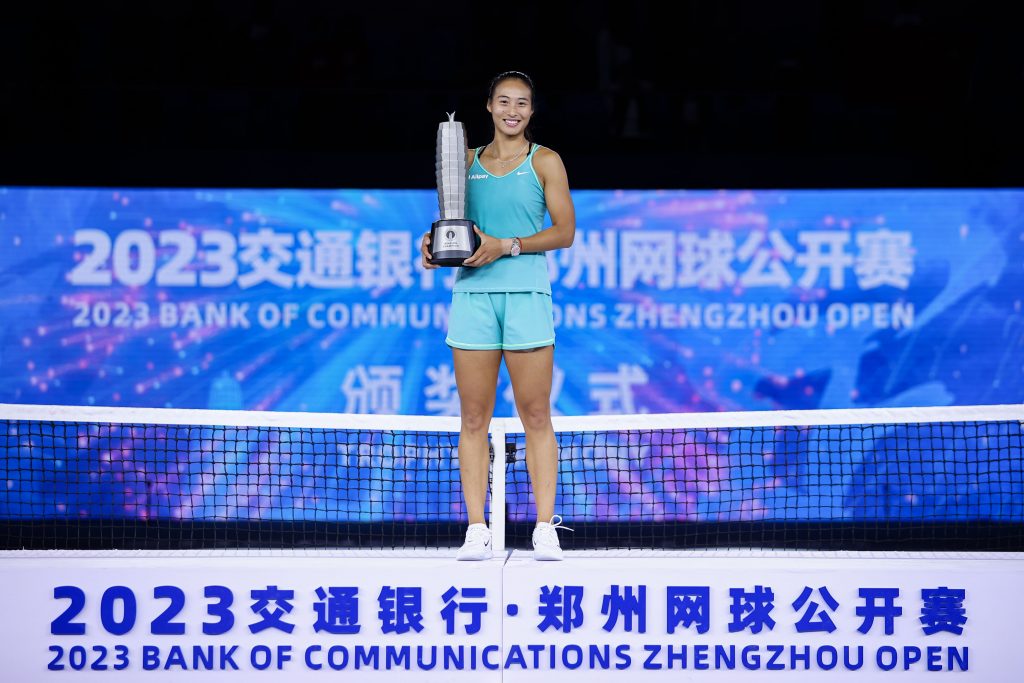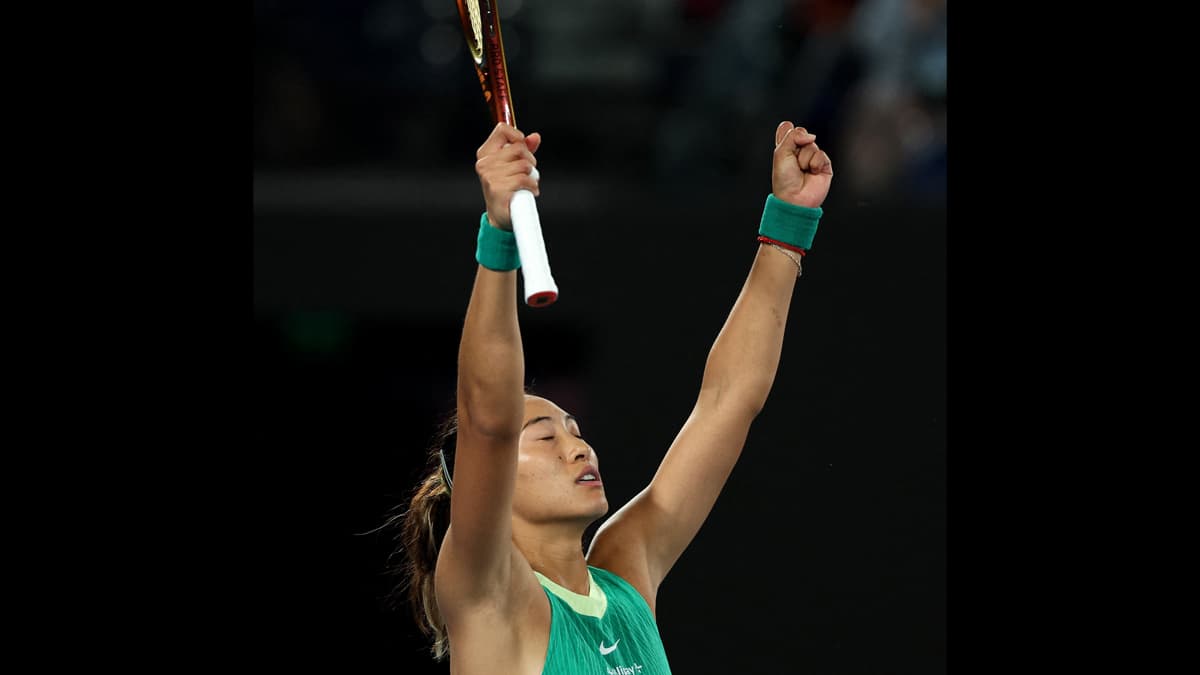The Meta Antitrust Lawsuit: FTC's Case On WhatsApp And Instagram Acquisitions

Table of Contents
The FTC's Argument: Stifling Competition
The FTC's central argument revolves around the assertion that Meta used its dominant position in social networking to eliminate potential competitors by acquiring WhatsApp and Instagram. This action, the FTC contends, stifled competition and harmed consumers.
Monopoly Power: A Stifled Market
The FTC argues that Meta's acquisitions prevented the emergence of rival messaging and photo-sharing platforms. Evidence presented includes:
- Market share analysis: Demonstrating Meta's overwhelming dominance before and after the acquisitions. This includes data on active users, engagement rates, and overall market penetration.
- Lack of viable alternatives: The FTC highlights the absence of strong competitors capable of challenging Meta's market power in the messaging and photo-sharing spaces following the acquisitions. This suggests a lack of innovation and choice for consumers.
- Impact on innovation: The FTC claims that Meta's actions stifled innovation by preventing smaller, potentially disruptive companies from entering the market and competing with its established platforms. This is supported by evidence showing reduced investment in competing technologies.
Anti-Competitive Practices: Post-Acquisition Consolidation
Beyond preventing the rise of competitors, the FTC alleges that Meta engaged in anti-competitive practices after acquiring WhatsApp and Instagram, further solidifying its monopoly. This includes:
- Data sharing practices: The FTC scrutinizes the sharing of user data between WhatsApp, Instagram, and Facebook, arguing that this cross-platform data aggregation provides Meta with an unfair competitive advantage.
- Limited consumer choice: The FTC contends that Meta's control over these platforms limits consumer choice and forces users into a walled garden of interconnected services.
- Harm to smaller competitors: The FTC argues that Meta's actions actively harmed smaller competitors, depriving them of the opportunity to compete fairly and innovate within their respective markets.
Meta's Defense: Innovation and Consumer Benefits
Meta counters the FTC's claims, arguing that the acquisitions fostered innovation and benefited consumers.
Innovation Argument: A Synergistic Approach
Meta's defense emphasizes the integration of features and technologies across its platforms, claiming this integration significantly improved user experience. Key points include:
- Feature integration: Meta highlights the integration of features between platforms, creating a more seamless and interconnected user experience, beneficial for consumers.
- Enhanced user experience: The company points to increased accessibility and usability across its platforms as a direct result of these acquisitions, benefiting millions of users worldwide.
- Investment in new technologies: Meta highlights its post-acquisition investment in new technologies and features, suggesting that the acquisitions spurred innovation rather than stifling it.
Competition Remains: A Dynamic Market
Meta also argues that robust competition still exists in the broader digital market, despite its significant market share in social networking and messaging. This argument includes:
- Other social media platforms: Meta points to the existence of other significant social media platforms and messaging apps, arguing that this demonstrates a vibrant competitive landscape.
- Dynamic tech industry: Meta emphasizes the dynamic and rapidly evolving nature of the technology industry, with constant new entrants and shifting market dynamics.
- Rebuttal of FTC claims: Meta directly counters the FTC's claims of stifled competition by providing evidence of ongoing competition and innovation within the digital market.
Potential Implications and Outcomes of the Meta Antitrust Lawsuit
The outcome of the Meta Antitrust Lawsuit will have significant consequences for the tech industry and its regulatory landscape.
Future of Tech Mergers and Acquisitions: Setting a Precedent
The case will set a critical precedent for future tech mergers and acquisitions, affecting how regulators evaluate the competitive implications of such deals. This includes:
- Increased regulatory scrutiny: A ruling against Meta could lead to more stringent regulatory review of future tech mergers and acquisitions, potentially slowing down consolidation in the industry.
- Impact on investment strategies: The outcome will influence how tech companies approach mergers and acquisitions, potentially making them more cautious about large acquisitions.
- Stricter antitrust enforcement: A successful FTC case could signify a stricter approach to antitrust enforcement in the tech sector.
Impact on Consumers: Choice, Privacy, and Pricing
The ruling's impact on consumers will be significant, potentially affecting choice, data privacy, and the pricing of Meta's services. Consequences may include:
- Divestiture or other remedies: If found guilty, Meta might be forced to divest itself of WhatsApp or Instagram, or implement other structural remedies to increase competition.
- Pricing and features: The ruling could affect the pricing and features offered on Meta's platforms, potentially impacting user experience.
- User data and privacy: The case also raises concerns about data privacy, and the ruling could impact how user data is collected and used across Meta's platforms.
Conclusion: Navigating the Future of Tech Regulation
The Meta Antitrust Lawsuit is a critical case with broad implications for the tech industry. The FTC's challenge to Meta's acquisitions of WhatsApp and Instagram highlights the ongoing debate about balancing innovation with market dominance and consumer welfare. The outcome will shape future regulatory actions and profoundly impact the competitive landscape of the social media and messaging markets. Understanding the developments in this Meta Antitrust Lawsuit is crucial for anyone navigating the complexities of digital business and antitrust law. Stay informed to understand the future trajectory of tech regulation and its impact on your online experience.

Featured Posts
-
 Safeguarding Indigenous Knowledge The Crucial Role Of Data Protection In Scientific Research
May 13, 2025
Safeguarding Indigenous Knowledge The Crucial Role Of Data Protection In Scientific Research
May 13, 2025 -
 Southern California Mini Heat Wave What To Expect This Weekend
May 13, 2025
Southern California Mini Heat Wave What To Expect This Weekend
May 13, 2025 -
 Megalos Kataklysmos Mesogeioy Nea Dedomena Gia Tin Plimmyra
May 13, 2025
Megalos Kataklysmos Mesogeioy Nea Dedomena Gia Tin Plimmyra
May 13, 2025 -
 Ajak Dukung Persipura Kakanwil Papua Himbau Masyarakat
May 13, 2025
Ajak Dukung Persipura Kakanwil Papua Himbau Masyarakat
May 13, 2025 -
 Urgent Action Needed Wildfires And The Uks Endangered Species
May 13, 2025
Urgent Action Needed Wildfires And The Uks Endangered Species
May 13, 2025
Latest Posts
-
 Kenins Injury Ends Paolinis Dubai Reign
May 14, 2025
Kenins Injury Ends Paolinis Dubai Reign
May 14, 2025 -
 Potapova Triumphs Over Zheng Qinwen At Madrid Open
May 14, 2025
Potapova Triumphs Over Zheng Qinwen At Madrid Open
May 14, 2025 -
 Zheng Qinwen Falls Short Against Potapova In Madrid
May 14, 2025
Zheng Qinwen Falls Short Against Potapova In Madrid
May 14, 2025 -
 Madrid Open Potapova Defeats Zheng Qinwen In Surprise Result
May 14, 2025
Madrid Open Potapova Defeats Zheng Qinwen In Surprise Result
May 14, 2025 -
 Sinner Makes Italian Open Last 16 Osakas Tournament Ends
May 14, 2025
Sinner Makes Italian Open Last 16 Osakas Tournament Ends
May 14, 2025
